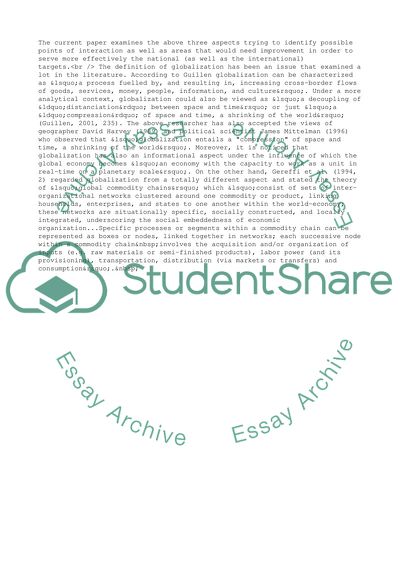Cite this document
(The Definition of Globalisation Term Paper Example | Topics and Well Written Essays - 2000 words, n.d.)
The Definition of Globalisation Term Paper Example | Topics and Well Written Essays - 2000 words. Retrieved from https://studentshare.org/business/1536690-identify-and-examine-three-ways-that-contemporary-globilisation-impacts-on-international-relations
The Definition of Globalisation Term Paper Example | Topics and Well Written Essays - 2000 words. Retrieved from https://studentshare.org/business/1536690-identify-and-examine-three-ways-that-contemporary-globilisation-impacts-on-international-relations
(The Definition of Globalisation Term Paper Example | Topics and Well Written Essays - 2000 Words)
The Definition of Globalisation Term Paper Example | Topics and Well Written Essays - 2000 Words. https://studentshare.org/business/1536690-identify-and-examine-three-ways-that-contemporary-globilisation-impacts-on-international-relations.
The Definition of Globalisation Term Paper Example | Topics and Well Written Essays - 2000 Words. https://studentshare.org/business/1536690-identify-and-examine-three-ways-that-contemporary-globilisation-impacts-on-international-relations.
“The Definition of Globalisation Term Paper Example | Topics and Well Written Essays - 2000 Words”. https://studentshare.org/business/1536690-identify-and-examine-three-ways-that-contemporary-globilisation-impacts-on-international-relations.


